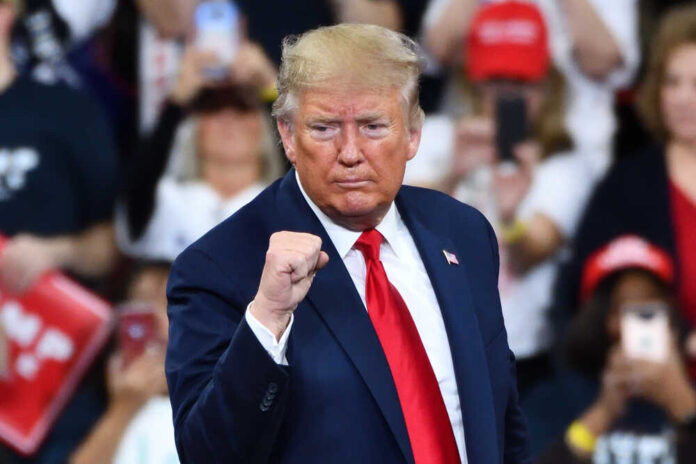On Friday, five members of Trump’s former Republican government voted against granting Trump immunity in the case he faces for the violence in the Capitol on January 6, 2021.
A federal grand jury in Washington, D.C., indicted Trump on many offenses on August 1, including conspiracy to defraud the United States, obstruction of an official proceeding, obstruction and attempt to hinder an official proceeding, and conspiracy against rights.
Special counsel Jack Smith of the Department of Justice (DOJ) issued the indictment following his investigation into the violent protests at the Capitol by Trump supporters in an unsuccessful attempt to prevent President Joe Biden’s Electoral College victory in 2020. The protesters were allegedly incited by Trump’s unfounded claims of widespread voter fraud.
However, the former president was not indicted on insurrection allegations. Trump, who denied wrongdoing and entered a not-guilty plea, has recently filed a motion to dismiss the case, arguing that he is immune from prosecution due to presidential immunity because he was in office during the relevant behavior.
On Friday, however, five ex-Republican administration officials from the Richard Nixon and George W. Bush administrations filed their motion arguing that Trump does not enjoy presidential immunity and pointing out the potential consequences of asserting such a claim.
On Saturday, retired federal judge J. Michael Luttig posted the entire motion to X. Former Vice President Mike Pence’s advisor and author of the motion, Michael Luttig, argues in it that Trump does not enjoy absolute immunity because, in his attempt to nullify the election that he knew he hadn’t won, he was in violation of the Executive Vesting Clause of Article II, Section 1, Clause 1 of the Constitution.”
According to Luttig’s X post, “To the best of our knowledge, this is the first brief ever to make this constitutional argument against full immunity from criminal prosecution for a president.”
The brief argues, among other things, that Trump wasn’t functioning as president and that the public interest must be taken into account because of the far-reaching consequences of granting Trump presidential immunity. To create total immunity from criminal prosecution so broad as to immunize a President who loses reelection but uses illegal action to seek to usurp a second term is thus contrary to the highest public interest against tyranny.
The motion argues that Trump’s assertion of absolute immunity could encourage future presidents to try to usurp power after losing reelection for a second term. Doing so would be a violation of the Executive Vesting Clause.
Such immunity would threaten to undermine the Executive Branch’s ability to do its job.


















